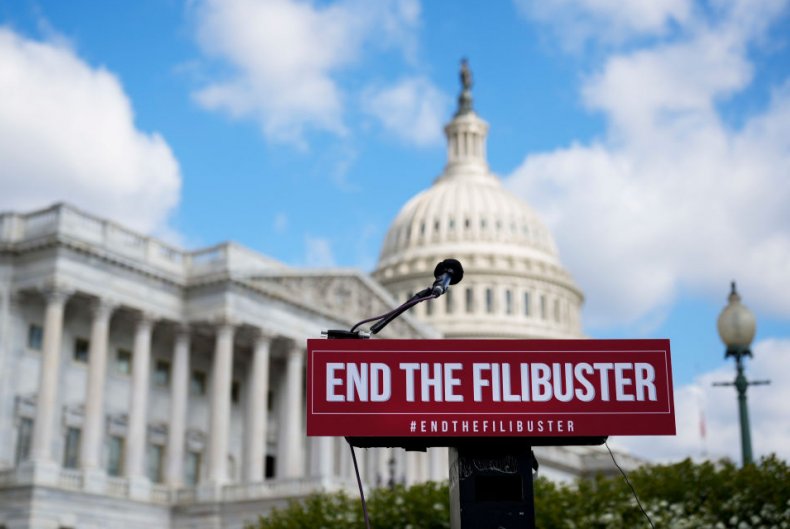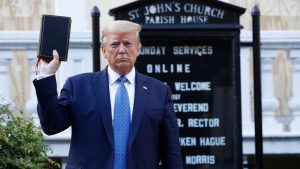Americans are divided on the future of the Senate filibuster, two weeks after Republicans used the rule to kill the creation of an independent committee investigation into the Capitol riot.
A new Morning Consult poll found that 48 percent of U.S. voters asked considered themselves pro-filibuster, while 27 percent said they were opposed to the rule. A further 25 percent said they were undecided.
The filibuster rule allows debate on a bill to be prolonged indefinitely unless 60 senators vote for discussion to be closed. A vote cannot take place until debate has ended, meaning a minority of at least 41 senators can block any bill from passing.
When a separate group of voters were asked whether they believed legislation should pass with a simple majority or a super majority of at least 60 votes, only 38 percent favored the 60-vote rule.
Forty-five percent said they favored bills passing with a simple 51-vote majority in the upper chamber, putting their stance at odds with the requirement set out by the filibuster rule.
The remaining 17 percent of voters in the second group said they did not know whether they favored a simple majority or a super majority for the passage of legislation.
Morning Consult found that Republicans were more supportive of the bill than Democrats. Almost six in ten (59 percent) said they were pro-filibuster, and more than half favored a supermajority for bills to pass the Senate.
Democrats were almost equally split when asked to describe themselves as either anti- or pro-filibuster. Thirty-seven percent said they were in favor of the rule, while 41 percent opposed it.
Morning Consult surveyed 1,990 registered voters between June 4 and June 7 for its latest poll. Its margin of error stands at 2 percentage points.
The poll was conducted after Republicans used the filibuster to block the creation of a commission to investigate the January 6 Capitol riots in late May after it had been voted through the House of Representatives.
Republican Minority Leader Mitch McConnell said on Tuesday that the Senate’s success in passing a bill aimed at helping U.S. companies battle against Chinese rivals was an example of a bipartisan bill making it through the upper chamber.
“One thing this legislation did demonstrate extremely well…was that the rules of the Senate don’t stand in the way of bipartisan legislating,” he told reporters at the time.
His remarks were a rebuke to Democrats who had complained about the GOP’s use of the filibuster to block the Capitol riots commission.
Drew Angerer/Getty Images



















